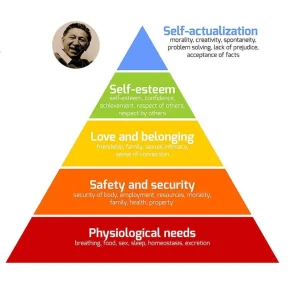How are you feeling today? Have you just woken up with your first cup of coffee, or are you on your lunch break at work? Maybe you have already had a full day and are relaxing at home with a glass of wine and catching up on personal emails. Wherever you are right now, I want you to take a moment to close your eyes and feel. Notice your body breathing and allow your tense muscles to relax. I say tense because most of us who are suffering because of Complex PTSD are tense, no matter what time of day it is. Allow your body to breathe more slowly and deeply. Let your arms fall heavily next to you and become limp, just for a minute.
Where did your mind go when you relaxed your body? What were your thoughts? If you were thinking of your deadline and work or packing up your kid’s equipment for tomorrow’s sports tournament, you weren’t truly relaxing.
Go ahead, give yourself another try so that you can relax this time. Get that brain of yours to not think of every detail of the day and just float away. Allow yourself to clear your mind and daydream.
Now, this time around, what were you thinking about?
What you just allowed yourself to do was to take time out from your busy life to just experience and feel. Since we do not often allow ourselves time to do this, it’s important to pay attention to your body in this way. Attempt to relax your body and let your mind wander at least once a day. You deserve to have a break because life is not easy, and if you are anything like me, you need it. You need to give your body permission to have a break and daydream. These natural and innate inner thoughts are desperate to be released daily, so listen to what your body tells you. If you don’t release the proverbial pressure cooker of emotions, you might eventually crack and have a freakout.
Living with Complex PTSD is not easy. We live in a complicated and fast-paced world. We are thrown daily into many different situations that act as stressors on our bodies. We take hit after hit emotionally with each situation we are plunged into. We are social creatures and depend on many people to live the lives that we do. Interactions between people at home and at work, meetings, phone calls, and, heck, even a trip to the food market can affect our emotions. Most of us feel that same stress every day, and living with complex PTSD makes us feel even more intensely than others. We hear and see little details that most people miss, and some of those scare and trigger us. It can be exhausting some days, especially when you are stressed about achieving something before a deadline.
For me, having a deadline looming and managing a career and kids takes up most of my time. I enjoy being busy, but I also feel that I’m juggling a lot. Each of us has ways of managing time, but our bodies cannot work at capacity 24 hours per day. We also need to rest and relax, and they are just as important as our drive to perform.
In this article, I want to explore those times when we relax and allow our bodies to rest and recover. Without the necessary rest or relaxation, our bodies will start to shut down and get sick. The toxic memories of some flashbacks can hit us at our most vulnerable moments and set us back in our day. As someone who is suffering from Complex PTSD, I know that our thoughts aren’t always rosy and happy. It is natural to hold onto dark emotions, such as fear and distrust of others. I think anyone would agree with me that we cannot be positive all the time. No one can. Those feelings need to come out just as much as the positive ones. I hope, if you are having a lot of dark thoughts and feelings, that you take care of yourself and seek someone who can help you through those complex emotions and guide you to a healthier state of mind. Trust me, I have been there many times because with every nightmare and flashback comes a myriad of shocking realizations that carry with them emotions that are raw and inhibited. These do require a good therapist, and I am proof that these do get better with time and a lot of self-care beyond therapy.
What I want to explore are those simple moments when we just feel because those emotions are vital for our survival. Pay attention to those inner thoughts and harness them. Bring them up in therapy and let them out in the open. Those are your basic needs right now, and those will show you the way to a happier, healthier you. Those thoughts are yours, so own them and act on them if you can.
When I was a young girl growing up in an abusive and volatile environment, I often daydreamed about being hugged. Don’t get me wrong, I had tons of flashbacks and horrific nightmares that traumatized me constantly. I wasn’t beyond living, and my need for survival was so great and fundamental that I disassociated from my traumatic experiences, and my mind wandered elsewhere. I went from the perpetual darkness into a private world that I had sown together in my little mind from glimmers that I had witnessed elsewhere. I had seen decent humanity in the way my friends’ parents hugged their kids with smiles and love on their faces. It scared me, but those smiles were also on my friends’ faces, and they were real in my head. I craved that loving touch like my next breath. I wanted such a loving touch badly. I wanted to know what it felt like to be loved and treasured.
What are your dreams and hopes in your daydreams? Where do you go when your mind wanders? Who do you meet? How does it feel when you are there?
Let your mind imagine this to become a reality. Can you see yourself in that world? How can you get there?
Feelings are just as important as breathing if we are to stay healthy. There are many online articles and books about our needs as human beings, but the most profound and influential findings are often cited by the well-known psychologist Abraham Maslow and his “Hierarchy of Needs”. For more information, please click A Theory of Human Motivation – A. H. Maslow (1943) | Fabien Collin – Academia.edu.

Photo from: A Day on Self Actualisation – The Weekend University
Maslow was influential in his research about how our needs as human beings are vital to our survival. It was a huge defining moment for psychology back in 1943, when Maslow identified these needs within a hierarchical triangle of importance. The foundation of that triangle was our physiological needs of air, water, sleep, food, health, and shelter. Maslow argued in his findings that all human beings needed these vital things before they could do anything else. Notice how one of those basic needs is sleep. Without rest, we cannot focus on our daily expectations as well as we do if we have sleep. I’m sure many of you have felt the acute lack of sleep deprivation, which can reduce the kindest person to the crankiest human being ever. I know that I’m not performing my best when I’ve been up all night for whatever reason. Know and understand that a lack of sleep will lead to not working at your best and most efficient that day. Once you’ve had that sleep that you crave, you will understand that a good night’s rest does help both our physical as well as our mental health. I think it is important to understand ourselves and how we function as human beings so that we are in tune with our bodies. If you understand why your body is acting the way it is, then it is easier to address those needs. My advice is to pay attention to your emotions and what you are feeling. Take care of yourself first and then focus on other people. I know that may sound obvious to readers who do not suffer from Complex PTSD, but this takes work for a survivor. We have been trained not to think of our own needs, so taking care of ourselves is difficult. Try every day to set aside a time when you can just relax and pay attention to your feelings, thoughts, and emotions. You will start feeling much better once those emotions come out into the open.
I’m going to leave you with some articles about Maslow’s Hierarchy of Needs. These are only a few of what exists out there on Maslow’s research and other psychologists who have studied his research and responded to it. I find this research interesting in terms of understanding myself and how I function in this complex world. This research has helped me in my healing journey.
My name is Lizzy, and I’m a survivor.
A Day on Self Actualisation – The Weekend University
Maslow’s Hierarchy of Needs as a Guide for Living – Eugene W. Mathes, 1981 (sagepub.com)
Abraham Maslow, His Theory & Contribution to Psychology (positivepsychology.com)
Guest Post Disclaimer: Any and all information shared in this guest blog post is intended for educational and informational purposes only. Nothing in this blog post, nor any content on CPTSDfoundation.org, is a supplement for or supersedes the relationship and direction of your medical or mental health providers. Thoughts, ideas, or opinions expressed by the writer of this guest blog post do not necessarily reflect those of CPTSD Foundation. For more information, see our Privacy Policy and Full Disclaimer.

For more about me: https://www.elizabethwoodsauthor.com
Elizabeth Woods grew up in a world of brutal sex offenders, murderers, and inconceivably neglectful adults. Elizabeth is passionate about spreading awareness of what it is like to survive after trauma. She is the author of several books and has written her memoir, telling her childhood story: The Sex-Offender’s Daughter: A True Story of Survival Against All Odds, available on Amazon Kindle and paperback.
Elizabeth is also the author of “Living with Complex PTSD” and the Cedar’s Port Fiction series: “Saving Joshua”, “Protecting Sarah”, “Guarding Noah” and “Bringing Back Faith,” and “Restoring Hope,” available here: https://www.amazon.com/stores/author/B0BCBZQN7L/allbooks?ingress=0&visitId=7e223b5b-1a29-45f0-ad9d-e9c8fdb59e9c&ref_=ap_rdr&ccs_id=931f96e2-c220-4765-acc8-cc99bb95e8bd




